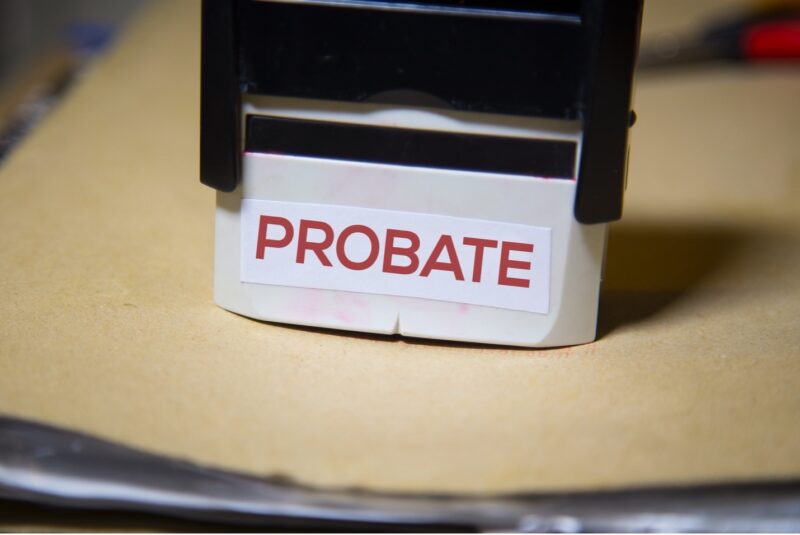When someone passes away, settling that person’s estate can be complicated and overwhelming for loved ones. The executor of an estate will need to know how to obtain a letter of testamentary. This legal document gives the executor the necessary authority to perform fiduciary duties and handle financial matters related to closing the decedent’s estate. Therefore, the letter of testamentary plays a significant role in the probate process. The letter is a valuable tool for the executor to manage the estate efficiently and effectively. If you have questions about the probate process and how to get a letter of testamentary, consider contacting an experienced estate planning attorney at Von Rock Law by calling (866) 720-0195 to schedule a consultation.
Obtaining a Letter of Testamentary
According to the American Bar Association, probate is a formal legal process that appoints an executor to administer a person’s estate. When initiating the probate process as an executor of a Last Will and Testament (will), the executor must obtain a letter of testamentary. This letter is a legal document that provides the executor with the necessary authority to perform the duties related to the estate. With any estate, numerous financial tasks need to be addressed after a person passes away, including:
- Paying off debts
- Gathering assets
- Distributing assets according to the will
- Notifying beneficiaries
Before completing any of these tasks, the executor must have the letter of testamentary. The document shows the executor’s status and authority to carry out the decedent’s wishes regarding his or her estate.
Who Issues Letters Testamentary?
A letter of testamentary is a legal document that a probate court issues. The probate court is responsible for handling the distribution of a person’s assets after the person’s death. This document is typically granted to the person named as the executor in the deceased person’s will. In the case of no will, the court will appoint an administrator. However, receiving letters of testamentary is not automatic. The executor must file a petition or application with the probate court in the jurisdiction where the deceased person lived.
Along with the petition or application, the executor must provide a certified copy of the death certificate, the original will (if there is one), and any other required documentation, such as a bond or oath of office. Once the probate court approves the application and the necessary documents are submitted, the court will issue the letter of testamentary to the executor. This document gives the executor the legal authority to act on behalf of the deceased person according to state law. If you want to learn more about how to obtain a letter of testamentary, a skilled lawyer from Von Rock Law may be able to help.
How Much Does a Letter of Testamentary Cost?
The cost of obtaining a letter of testamentary in California can vary depending on several factors, including the complexity of the estate and the fees charged by the probate court. In general, associated filing fees can range from several hundred to several thousand dollars, depending on the size of the estate.
Additionally, legal fees may be part of the process if an attorney is hired to assist with the proceedings. Generally, these fees can vary depending on the attorney’s hourly rate and the amount of work required. The estate’s assets may cover the cost of obtaining a letter of testamentary in California, allowing the executor to recover probate fees and expenses. An attorney or financial advisor may be able to give more specific information about the costs associated with obtaining a letter of testamentary in a particular case.
How To Get a Letter of Testamentary Without a Will
The Judicial Counsel of California describes intestate as the process when a person passes away without a will. According to state law, the probate court will appoint an administrator to manage the estate’s affairs and distribute the assets to the deceased person’s heirs. Usually, the administrator is a close family member, or another interested party. After being appointed by the court, this person will be granted a similar document called a letter of administration. To receive this legal document, the interested party must petition the probate court in the jurisdiction where the deceased person resided. At that time, the court will appoint the administrator and provide the legal authority to manage the estate’s affairs, pay off debts, and distribute assets to heirs.
The process of obtaining a letter of administration can be more complex and time-consuming than getting a letter of testamentary. The administrator will need to provide the probate court with detailed information about the estate’s assets, debts, and any potential heirs who may have a claim to the estate.
How Long Does It Take to Get Letters Testamentary?
The length of time it takes to obtain letters testamentary can vary depending on several factors, including the jurisdiction where the probate court is located and whether there are any challenges to the will or the appointment of the executor. Typically, the process of obtaining letters testamentary can take several weeks to several months, depending on the circumstances. The executor or personal representative must file a petition with the probate court, which will schedule a hearing to appoint the executor and issue the legal document. The court may also require that notice be given to the deceased person’s heirs and beneficiaries, which can add additional time to the process.
Contact a California Estate Planning Attorney Today
Knowing how to obtain a letter of testamentary is essential in the probate process. The letter gives the executor the legal authority to manage the estate’s affairs, pay off debts, and distribute assets to the beneficiaries. The length of time it takes to obtain letters testamentary can vary depending on the complexity of the estate, the jurisdiction of the probate court, and challenges to the appointment of the executor. Executors and personal representatives may want to seek guidance from an attorney or financial advisor for navigating the probate process to ensure that they fulfill their duties promptly and effectively. If you have any questions about this process, consider contacting an experienced estate planning attorney from Von Rock Law by calling (866) 720-0195 to schedule a consultation today.




